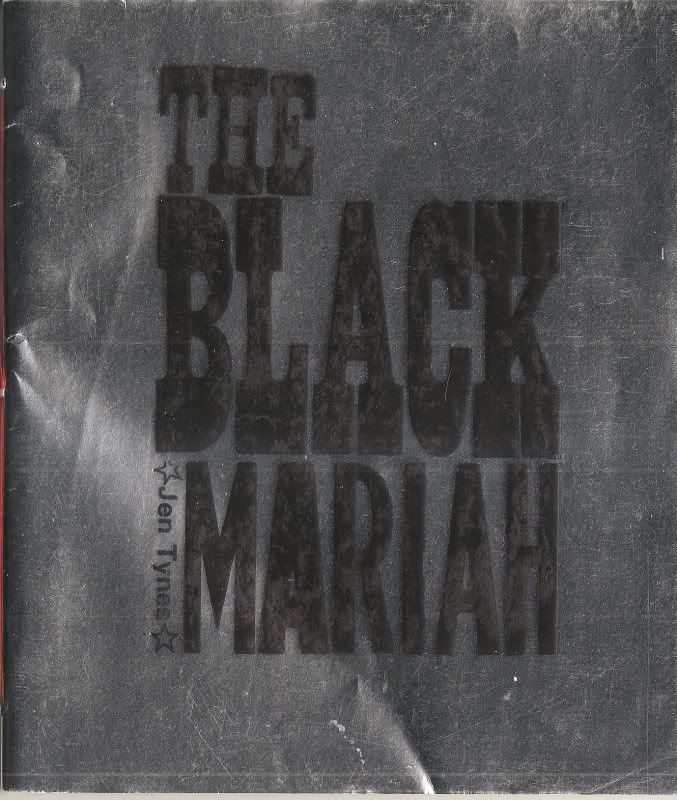
The Black Mariah by Jen Tynes, which will be released by
DoubleCross Press at the 2012 AWP, is a longish poem that alternates between sections of standard lineation and sections containing scattered lines that employ the page as an open field. Moreover, the poem focuses on the body and a series of strange transformations it undergoes. Take, for instance, this excerpt from the incipient section:
Where her eyelashes should
be: rattlesnakes on
full alarm. Her breasts a couple
mushroom clouds, vitals
full of holes where the red-
headed gunslingers missed her
apple. It looks like both a woman
and a vase inside her
pupils.
Rattlesnake eyelashes, mushroom cloud breasts, and pupil vases: the poem creates a new being that is neither one nor the other, but indissolubly both. While some may find such fantastic displacements off-putting, the speaker of these poems (and, by extension, anyone calling themselves a poet) thinks otherwise, saying as much when she states: "My head will not turn / against all the body's forms." In some respects, embracing "all the body's forms," including those of that cross species lines, hearkens back to Horace's The Art of Poetry. In his treatise on verse, the ancient wrote:
Suppose you'd been asked to come for a private view
Of a painting wherein the artist had chosen to join
To a human head the neck of a horse, and gone on
To collect some odds and ends of arms and legs
And plaster the surface with feathers of differing colors,
So that what began as a lovely woman at the top
Tapered off into a slimy, discolored fish—
Could you keep from laughing, my friends? Believe me, dear Pisos,
Paintings like these look a lot like the book of a writer
Whose weird conceptions are just like a sick man's dreams,
So neither the head not the foot can be made to apply
To a single uniform shape. "But painter and poets
Have always been equally free to try anything."
We writers know that, and insist that such license be ours.
Indeed, poets must take "license" to develop in their writing a disparate beast (to develop their writing as a disparate beast) that does not conform to "a single uniform shape," and to do so freely and without fear of the spectators "laughing."
The following "weird conception," originally published in an issue of
Anti-, is my favorite of
The Black Mariah and brings to bear the transformative capabilities of the poet:
We perform best when
we listen to the bird
inside the bird, dark bellied
ugly augur song that
likes to measure us out
of space. For demonstrative
purposes the body can affix
to any orphan line. My eyes are bulls’
eyes, my calves are wet,
pliable, the roped-in death
of me. My mother is
a fertility trick. We perform
best when we admonish
our animals for
the gaminess they visit
upon our routine. We are not two
of everything in
a line, following the color
spectrum. My father is a shadow
on the image. I look for a bird
inside a bird because it slips
bones out of
everything I touch.
I break the character and look
for hours like a body
no one knew to recover.
The "character" embodied within the poem's "I," literally, "breaks" into pieces and is reconfigured in ways that allow the reader to "look [at it] / for hours": constant permutations providing enjoyment for an audience who reveals in displacement and the collage of shapes into new forms.














